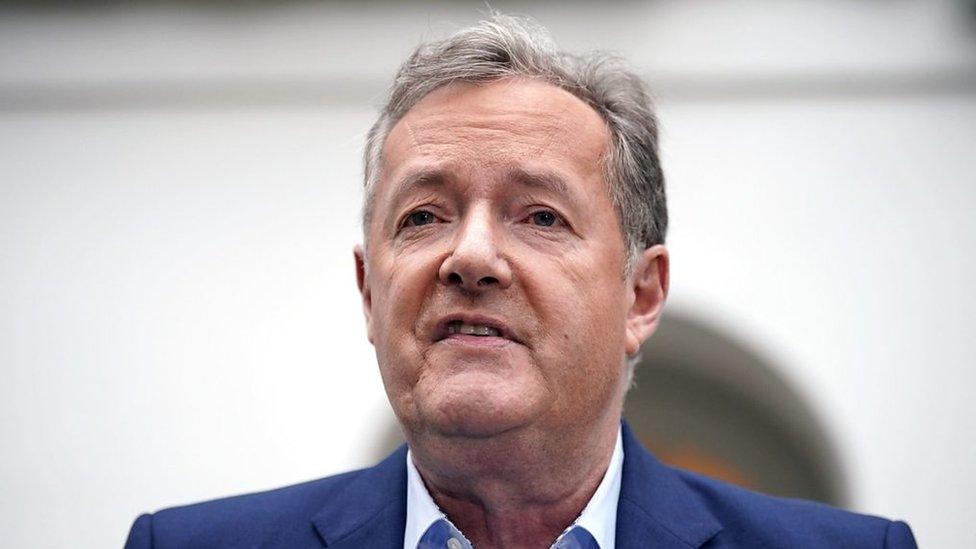Mirror hacking case: Prince Harry has last laugh but 'mission' goes on
- Published
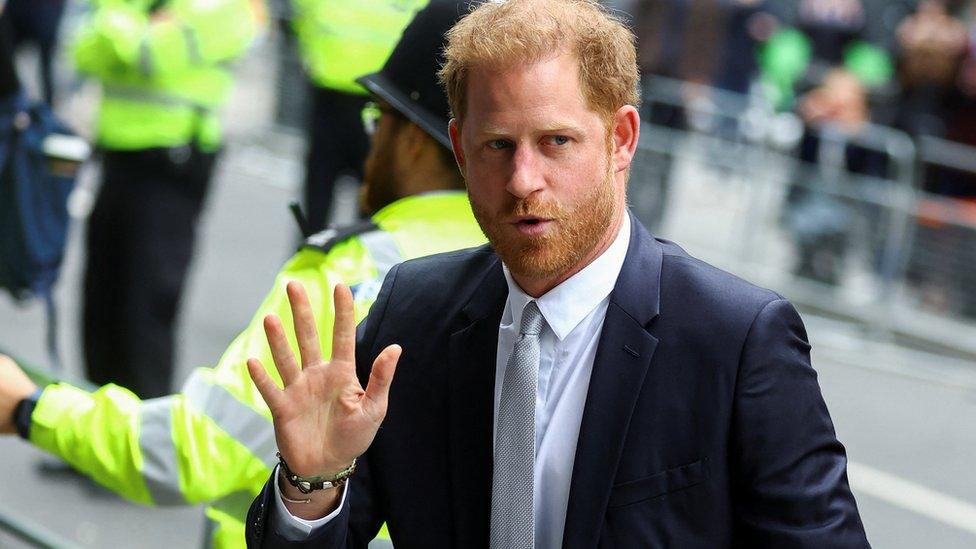
Prince Harry faced questions from the Mirror lawyers in court
There is little doubt the High Court ruling that Prince Harry was a victim of phone hacking by Mirror Group Newspapers on multiple occasions has huge implications.
The court has ruled that Prince Harry was hacked, as were his friends and associates. The case established that Mirror titles also used other unlawful methods to get information about him.
It raises questions. Firstly, will any criminal proceedings follow from it?
The Metropolitan Police has already said it will consider the judgment carefully. Clearly the burden of proof is higher in a criminal trial - but there is no doubt it is what Prince Harry wants.
What - if anything - will lead from the ruling that phone hacking was going on, even during the Leveson Inquiry which investigated the scandal? A government-appointed inquiry that was told by many senior newspaper executives they had no knowledge of this illegal behaviour.
Those executives include the former Mirror CEO Sly Bailey. On Friday the judge said she knew about what was happening.
Another question brought up by the ruling - can we read anything from it about the actions and methods used by other newspaper groups?
The prince is also pursuing News Group which owns the Sun and the defunct News of the World, as well as Associated Newspapers which owns the Daily Mail.
These are different cases, with different evidence.
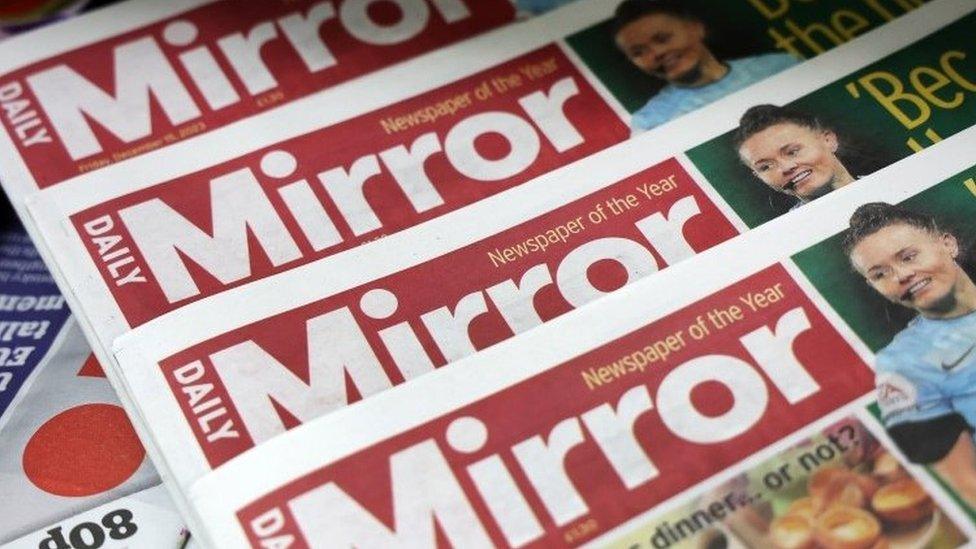
The power and influence of tabloids has reduced in the age of the internet and social media
But, as the judge put it, "the duke has been one of the most important storylines in town for much of his life".
And clearly, that does not just apply to Mirror titles.
The articles that broke the law date back to a time when newspapers were the gatekeepers of information and when millions read the tabloids.
They were in a vicious battle for exclusives and stories about the royals sold.
Certainly, at the time, Mirror Group's newspapers implicated in the judgment wanted scoops and were willing to break the law to get them.
The media landscape is very different now, with newspaper groups buffeted by the headwinds of social media and the internet, as well as a fall in advertising - and crucially, readers.
Circulations are a fraction of what they were. Which means the value of these newspapers has fallen dramatically too.
In March 2005 for example, at their peak, shares in Reach PLC which owns the Daily and Sunday Mirror and the People were worth £6.72. Earlier on Friday, they were valued at 71p.
Interestingly, after the judgment the share price rose 4%, perhaps because the damages awarded to the prince were not as high as he had wanted. Or perhaps it was because the decision offered "clarity", as MGN put it.
It is a sign of the difficulties facing the press. This judgment can only add to that existential crisis.
Reach is valued at around £250m. It has already paid out around £100m in damages and legal costs over phone hacking.
It must pay Prince Harry £140,600, and potentially more over other articles that have not yet been decided on.
And there are around 80 other people waiting in the wings, with their own claims they want to pursue.
During the trial, the Mirror barrister referred to the "catastrophic effects" of previous settlements.
As recently as last month, Reach announced 450 job cuts, blamed on the economic environment.
These are very difficult times.
Prince Harry has long maintained that the newspapers have an agenda against him.
Covering the trial, I often felt as if I was in a parallel universe.
What I saw in court did not seem to equate with what I read about in the reporting by some papers about the trial.
Some of this was trivial. Something the prince clearly said as a joke was described in the Mail as a grumble. It really wasn't.
A polite ask to "repeat the question" was written up as a demand. He was described as a combustive mixture of "victimhood and arrogance".
That is not what I saw.
More damagingly perhaps, some headlines too appeared a little skewed. For example, that he had told the judge he "is not aware of any evidence he was hacked by the Mirror".
Clearly, he and his legal team believed there was evidence, or they would not have brought this case.
He has had the last laugh. This is the most comprehensive legal judgment about one media organisation's unlawful methods since the scandal of phone hacking first emerged.
And as he put it, his "mission" continues.
Hear candid and exclusive testimony from celebrities on claims of unlawful information gathering at some of the UK's biggest papers in Scandalous: Phone hacking on trial on iPlayer.
- Published15 December 2023
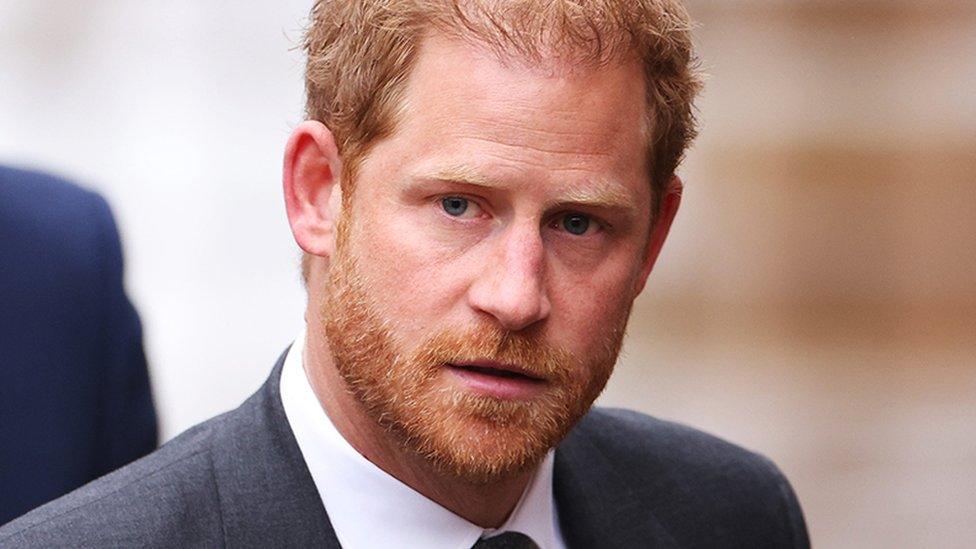
- Published15 December 2023
- Published6 June 2023
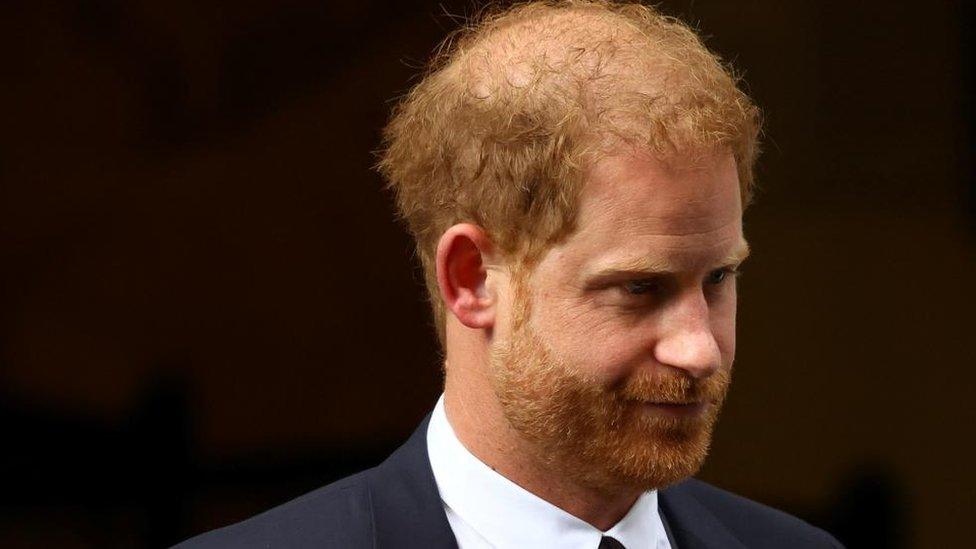
- Published15 December 2023
